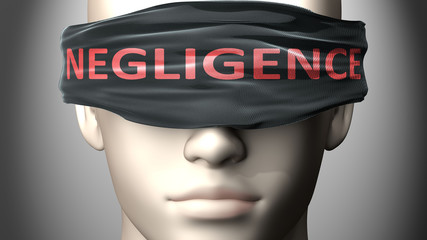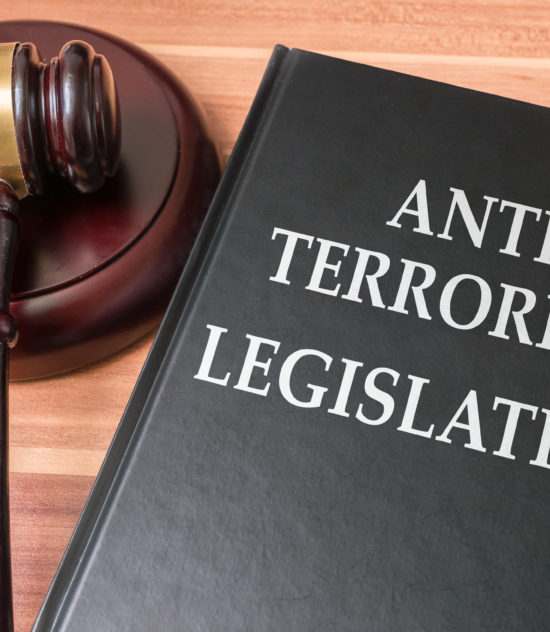Directors and Officers Insurance
- Home
- Private: Insurance
- Directors and Officers Insurance
What is Directors & Officers Insurance?
Directors and Officers (D&O) insurance protects company leaders against personal losses if they are sued for alleged wrongful acts while managing a business. It also covers legal fees and other costs the company may incur from such claims.
Many individuals in a business are often unprotected, particularly where they have acted without proper authority or breached any part of the Companies Act, however inadvertently.
It’s there to protect financially against any claims made against a director, partner or officer of your business. From health and safety concerns, to a claim for breach of duty, negligence, defamation or even pollution, our insurance will covers a business against the costs of defending or settling legal or criminal actions.
You should get Directors and Officers insurance as soon as you form a company and appoint directors, especially if you’re seeking investors or hiring senior staff. It’s essential to have it in place before any decisions are made that could lead to liability claims.
The level of cover you need will depend on the nature of your business and the kinds of risks a director or officer will likely be exposed to. We can cover from £100,000 to £10 million, but your policy is as personal to you as your business. We’ll work with you to figure out exactly what you need and we’ll tailor your policy accordingly.
Our Directors & Officers insurance product has been designed to provide the widest possible cover, alongside 24-hour legal support provided by our partner, rRadar.
The duties of directors and officers has been established through statutes, regulations and case law and can be broken down into various areas:
– The duty of care and skill
– Fiduciary to act honestly, in good faith
– Companies Act 2006
– The Modern Slavery Act 2015
– Criminal Finances Act 2017
– Defamation Act 2013
– Insolvency Act 1986
– Financial Services Act 1989
– Environmental Protection Act 1990
– Health and Safety at Work Act 1974
– General Data Protection Regulation
– and more
A growing threat - why every business needs directors' & officers' insurance
We recently featured James Caan’s Your Business magazine highlighting the main exposures to anyone running a business.
Call for a quote
Make an enquiry
Further Information

Individual directors can find themselves personally liable for a company’s legal and regulatory failings and obliged to meet financial liabilities from their own funds – D&O insurance covers this.

Insolvency situations often lead to claims against former, even retired, directors who remain “in the frame” long after the wrongful act was committed. A Directors and Officers policy covers this.

Breach of duty in negligence liability may be found to exist where you fail to meet the standard of care required by law. Directors and Officers provides cover for this.

Defence costs are covered in a D&O policy, including for health and safety investigations and corporate manslaughter, meaning that should the very worst happen, your costs are covered.

Any costs and awards arising from pollution, a failed private offering, wrongful administration of a company pension or benefit scheme, or by individual shareholders, are covered by Directors and Officers insurance.

Our Directors and Officers liability insurance includes ten years’ run off cover, so even after a director retires, a company is still protected should a claim arise.

Directors and Officers insurance covers any wrongful acts of the company that lead to legal costs, settlements or damages. It also protects the company itself against securities-related claims, under the policy’s corporate coverage section.

Employment Practices Liability will protect directors and officers against personal actions for wrongful dismissal and other employment related actions.

If someone makes a claim against a director or officer for any actual or alleged infringement of any intellectual property rights, defamation, including libel, slander, or malicious falsehood, D&O insurance will cover the defence costs.
We provide an exclusive legal service under our Management Liability Policy, with access to a specialist litigation and commercial law firm that specialises not only in the management of legal crises, but also in their prevention.
- Support against all regulators
- Regulatory investigations
- Regulatory prosecutions
- Breaches of contract
- Fees for intervention
- Employment tribunal and ACAS claims
- Defence for the organisation itself
- £100,000 data protection breach
- Customer/supplier contact cover
- Employee theft cover
- Deprivation of assets
- Employment civil fines
- Pollution clean up cost cover
- Third party electronic funds transfer cover
- Loss of directors’ time
- Brand damage
- Employee engagement impact
- 24/7 out of hours crisis line
- Stress and worry for directors & managers
- Defence against employment tribunal claims
- £25,000 pursuit cover for contract disputes and debt recovery
- Legal defence for directors, trusteees, partners and officers
- Negative social media crisis and public relations costs
- Circumstance investigation/mitigation costs
- 24 hours, 7 days a week crisis line straight to a solicitor at no additional cost
- Legal advice line Mon-Fri 8am-6pm
- Legally privileged advice, support & representation
- Downloadable legal & regulatory advice, support guides, letters & templates
- Access to our digital tools via exclusive portal
Typical Claims
The shareholders of a small construction company were assured by the managing director that an investment into a property venture would be an opportunity for the business to grow. But due diligence was lacking and the venture failed, with significant financial losses. The shareholders believed negligence was to blame and started legal proceedings against the managing director.
Legal costs £175,000
The estate of a deceased employee claimed that a Director of the company employing her was responsible for arranging her death-in-service life insurance cover and had negligently failed to do so.
Defence cost: £16,000
A company’s Managing Director was quoted in two newspaper articles as having concerns as to the propriety of the owner of one of the company’s suppliers. The owner claimed for defamation. The claim was eventually dropped, but only after insurers had funded the Managing Director’s defence costs.
Defence costs: £32,000
A Marketing Consultancy successfully made a claim against its former Managing Director for diverting parts of the business, and its opportunities, to his new company. The court held that the Managing Director misused the property of the agency, breaching his fiduciary duty; they also ruled that he was accountable to the company and should personally pay compensation.
Defence costs £26,000.
14 directors of a privately owned delivery business were banned after the company went into insolvency and was the subject of a subsequent DTI investigation. Only two directors ran the business on a day-to-day basis, but all directors were found to be responsible for the books and records not being up to the correct standards. Defence costs were incurred to defend the legal actions against the directors.
Total claim £195,000
A former director of a company sued the current directors, after alleging that they had conspired to deny him his correct pension benefits. The directors personally incurred costs of £36,000 defending the claim.
Total claim £36,000
The acquiring company in a UK acquisition launched proceedings against the principal Directors of the target company, alleging negligent and/or fraudulent misrepresentation of the financial standing of the company. The amount claimed was the entirety of the purchase price.
Loss: Estimates of the defence costs exceed several million pounds.
The claimant was officially dismissed from her employment for gross misconduct on the grounds of her failure to pass a test. The claimant subsequently sued her former employers together with a number of her former colleagues, one of whom was deemed to be an officer of the company, alleging sexual discrimination and sexual harassment. The complaint was ultimately settled for £50,000, but the insured also incurred defence costs. Insurers contributed to both the settlement as well as the defence costs.
Total claim £327,000
In the two weeks before their company went into receivership, two directors allowed their company to continue to trade, despite knowing it could not avoid collapse. Trading during the two weeks created a VAT liability of £50,000, which, because of the receivership, was not paid to the Crown. For trading while insolvent, the directors received orders disqualifying them from being company directors. They succeeded in having the orders overturned on appeal, but only narrowly: the court criticised them for failing to take advice, but their incompetence was not so great that they should be disqualified.
Defence costs £100,000
Frequently Asked Questions
Directors and officers (D&O) insurance policies offer liability cover for company managers to protect them from claims which may arise from the decisions and actions taken within the scope of their regular duties.
Any allegations of wrongdoing need to be investigated and defended, and this can cost a significant amount even if the case doesn’t reach court. This means directors’ and officers’ personal finances are at risk, so it’s essential companies provide protection through Directors and Officers (D&O) liability insurance
If your directors or management team have legal or regulatory responsibilities to employees, the public, regulators, investors or other directors, then D&O liability insurance should be considered. It is particularly important for companies who have raised or who are seeking investment from external shareholders. All firms that fall under the Senior Managers Certification Regime (SMCR) have an increased risk in making sure they act appropriately. D&O is even more relevant for these firms as it ensures your employees are covered if they unintentionally run foul of their regulatory responsibilities.
D&O personal liability claims can cover a whole range of issues, from breaching health and safety laws, allegations of cyber-bullying, to misrepresentations in a pitch deck, or errors in financial reporting.
- Employees know their employment rights and are increasingly likely to sue
- Legal liability is shifting away from companies and towards personal liability
- Regulators are now more proactive in investigating companies
If you have shareholders that own 15% or more of the company, then check for a “major shareholder exclusion” – this effectively excludes any claim brought by a shareholder against the business that owns 15% or more of the company’s shares. And should you have shareholders, business activities or contracts, make sure your jurisdiction allows for worldwide claims. Another thing is to make sure your limit is high enough, as many D&O plans have an aggregate limit, meaning another director/officer could use it up, should a claim be made – leaving you exposed.
It’s key to remember that directors and officers insurance only covers claims in connection with how the business is governed – not the business activities it carries out. You may also need public liability insurance and professional indemnity insurance to protect the company as a whole.
The core purpose of a D&O policy is to provide financial protection for managers against the consequences of actual or alleged “wrongful acts” when acting in the scope of their managerial duties. The D&O policy will pay for defence costs and financial losses. In addition, extensions to many D&O policies also cover costs for managers generated by administrative and criminal proceedings or in the course of investigations by regulators or criminal prosecutors.
These coverage extensions are gaining more and more importance among company directors. In this way, managers receive comprehensive, integrated cover that ensures them a reliable, consistent and structured legal defence.
There are different risks in different markets. The United States is by far the world’s largest D&O market with a premium volume of around $6 billion, and there the most frequent source of claims are claims related to employment or HR issues such as discrimination, sexual harassment or wrongful termination. From 2000 to 2008, over 40% of D&O claims in the US were employment related claims. In most cases the managers did not act themselves; they simply did not enforce employee conduct rules against discrimination and harassment.
While these are the most frequent claims in the US market, they are not the most expensive ones. The severity of securities claims is much higher. Insurers are watching closely whether shareholder activism and class-action lawsuits are on the rise, but the frequency of these claims seems to have stabilised at its current high level. In other markets worldwide, shareholder claims are on the rise along with the general trend of increasing shareholder right
This could be a breach of trust, breach of duty, neglect, error, misleading statement or wrongful trading, committed or attempted by a director or officer whilst acting in this capacity on behalf of the company.
All current, future and past directors and officers of a company and its subsidiaries are covered under a D&O policy, which can also include non-executive directors. In very specific cases, like securities claims, the policy can even be extended to cover claims against the company itself. Cover is usually taken out and paid for by the company. Depending on the respective local law and policy, this may or may not be viewed by legislators as a “benefit-in-kind” for those persons it covers
As a director or company officer, it’s your job to protect the best interests of the business you manage, including your employees, customers and any shareholders. If you take a decision that for, all good intentions, ultimately has a negative impact on company profits, stock value or reputation, you could be held personally accountable for those losses and depreciation in value. At this point, a claim could be made against you personally for which you, not the company, are financially liable.
It’s for this reason that more and more organisations are turning to D&O insurance to protect their directors & officers personal liability. As personal claims singling out named individuals, rather than companies, increase in frequency, director’s liability insurance offers your directors and company officers financial protection – something that can’t be undervalued in an age where culpability and the ‘blame game’ is becoming ever more prevalent, and company directors increasingly are scapegoats in order to ‘save’ a business.
Director’s liability insurance can step in at such times, protecting personal assets by covering the cost of any legal fees or successful compensation claims for which the named director or officer would otherwise be personally liable.
An important thing to bear in mind is that cover isn’t exhaustive, meaning there are certain actions and behaviours which won’t be protected under the terms of your arranged cover.
You can find these exclusions as part of your policy wording, and the majority of reputable insurers will also make you aware of these from the outset too. While the specifics of these exclusions will vary from policy to policy, and insurer to insurer, there are some common exemptions across the board to be aware of.
For the most part, D&O insurance won’t cover any instances of criminal wrongdoing or illegal activity on the part of your director or officer. Nor will the policy offer protection for claims or accusations that arose prior to the insurance start date.
These exclusions typically include (but aren’t limited to):
- Criminal acts such as fraud or money laundering
- Damage to property or bodily harm (except corporate manslaughter)
- Deliberate acts of non-compliance
- Any illegal activity
- Pre-existing claims
- Grievances already in effect at the time the policy was taken out
So even those with a directors & officers insurance policy can still find themselves at risk should they breach the terms of their agreement, or indulge in behaviour outside the remit of the law.
See our latest articles













